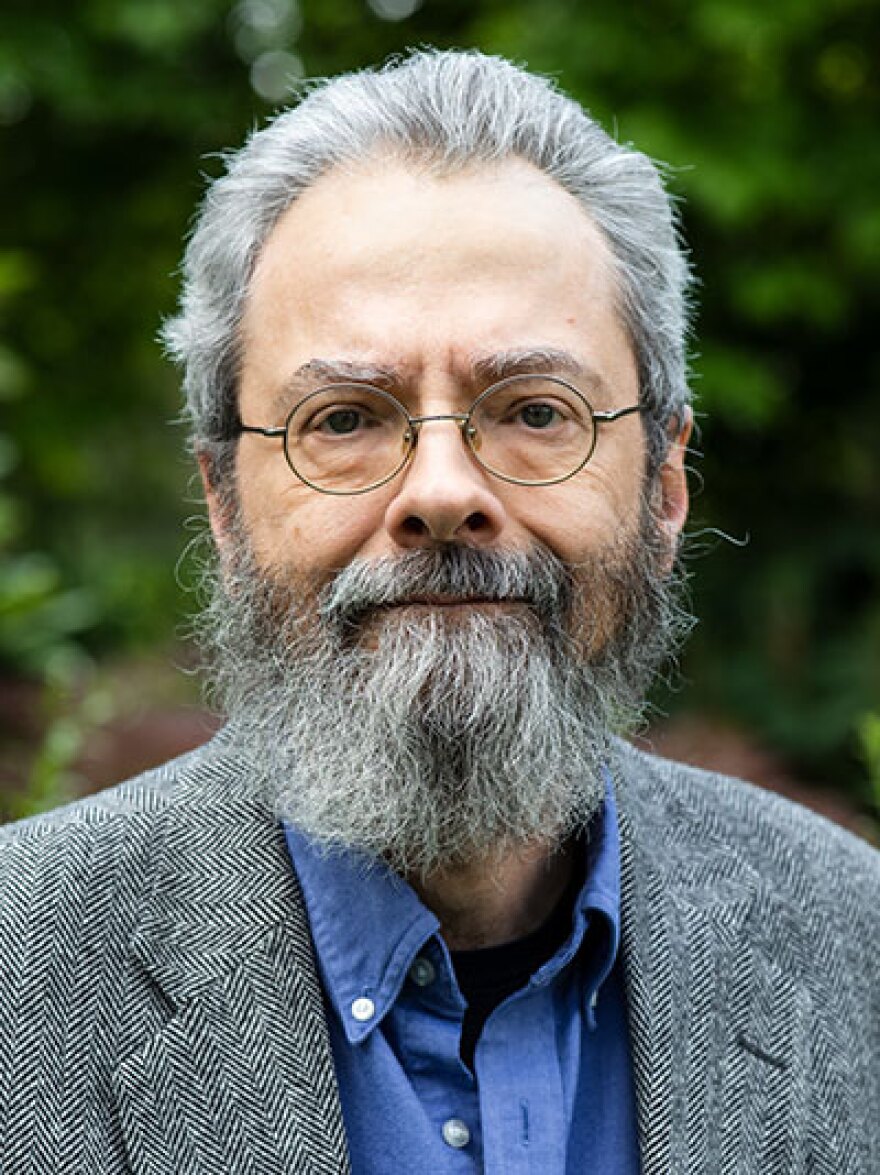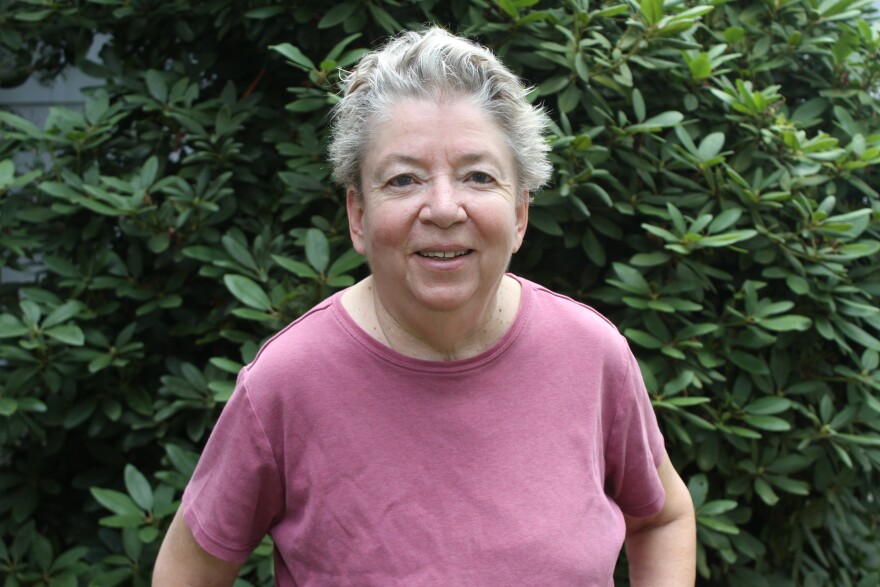Denise Giardina is a highly regarded Appalachian author whose works include “Storming Heaven” and “The Unquiet Earth.” Both of those books are set in West Virginia, in the coalfields. They revolve around the miners’ struggle with mine owners and unions, including the Battle of Blair Mountain in 1921.
In his new book about Giardina’s work, called “Heeding The Call: A Study of Denise Giardina’s Novels,” author William Jolliff explores the deep theological message in Giardina’s works and how he believes her work should be regarded on a national level. Giardina only read the book after it was completed.
Eric Douglas spoke to both Giardina and Jolliff by Zoom to discuss the new book.
This interview has been lightly edited for clarity.
Douglas: What’s it like to have somebody write an entire book about you and your work?
Giardina: Well, it’s very weird, because usually it doesn’t happen until you’re dead. So, I kept thinking, as I was reading it, and ‘I’m still alive, right?’ But it was also fun because I haven’t read those books myself, in some cases, in 30 years. I used to do public readings and I had certain parts that I liked to read because audiences seemed to respond to those. So, I knew those parts really well. But then there were parts of the books that I’d totally forgotten about.
I guess, if somebody takes enough time, first of all, to read every book you’ve written, and then to write a book about it themselves, they must actually pretty much like it. I mean, when the opposite happens, it’s usually somebody who is dead and famous and some writer decides they’re going to take them down a peg or two. But in this case, I kind of went into it expecting that maybe he kind of likes my books, and he does. Even better, he understands them. I think he really puts a focus on them that needed to be made, which is that I get pigeonholed as a regional writer when in fact, I’m a theological writer.
Douglas: What does that mean to you?
Giardina: That’s the way I think. And everything I write comes from that theological perspective; believing in God, and all that that entails, morally and ethically and spiritually. Yet a lot of people don’t understand that because, for example, my books would never be carried in a self-labeled Christian bookstore. There’s too much sex and there’s too much violence. But yet, they’re deeply spiritual, I think, and deeply theological, because those are the questions that interest me.
Politics interests me. Certainly, the Appalachian region interests me, although not as much as people might realize. But the things that interest me are sin, redemption, forgiveness, love, fear of death, life after death. Those kinds of things are the questions that interest me and that’s what the books are all about. Every single one of them.
Douglas: Mr. Jolliff, you’re an English professor, right? And you actually teach Denise’s books as, I don’t know if it’s a class itself or as part of one of your classes.
Jolliff: I do both. I started teaching “Storming Heaven,” because it was in an introductory kind of class where I’m trying to get students to engage with a culture very different from their own. If you grew up in the Northwest, Appalachian culture is very different. And so, it was a great tool in that regard.
Plus, of course, that faith element. I teach at a faith-affirming institution, so students come in with more or less a willingness to look at some of those deep faith aspects. So, I taught it there. And then I started using “Unquiet Earth,” in my 20th century American Literature survey, upper-level course.
Douglas: Mrs. Giardina, I kept flashing back to high school English classes where teachers were trying to tell us, ‘This is what the author was thinking when they were writing this.’ Did he get it right? That’s always the question every teenager has.
Giardina: In this case, I think he did get I’d say 95 or 96 percent. Maybe just maybe two or three percent that was a little off, that if I sat down with him and talked to him about it, I could say, ‘Yeah, but you know…’ But he really did get a lot of it right. And I felt very good about that.
Douglas: Mr. Jolliff, who do you want to read the book?
Jolliff: I want it to be a help for students. Sort of the picture in my mind for the reader is someone who’s far into literature, maybe an upper-level undergrad or someone who’s maybe starting their graduate studies. I wanted this to be sort of a jumping-off point for what those students might think they should study and what they should write about.
I assumed it would find some kind of reception, whether positive or negative or critical, among people who do Appalachian studies. I mean, she’s just really significant in that area.
I shouldn’t say the most important, but certainly always in my mind was the fact that there are a lot of folks who write about theology in literature or who write about religion in literature, whom I would really like to somehow put in contact with her work. Her handling of those aspects is on par with anybody, and better than most. And while I like the idea that she’s an Appalachian writer, I would like her work to enter into that bigger conversation of where people write about and study contemporary handlings of theology.
Douglas: Is there anything else that we haven’t talked about that you want to mention?
Jolliff: Only that I maybe I would say this. I started studying her seriously because I was drawn to particular books. And I started teaching her because she fit very well in certain objectives that I had for my classes. But I can’t state too broadly really, or too richly, how much of a great experience it was to get this far into the mind of one great writer.
“Heeding The Call: A Study of Denise Giardina’s Novels” is available through West Virginia University Press.
Jolliff is currently the chair of the Department of Writing and Literature at George Fox University in Newburg, Oregon. Giardina lives in Charleston, West Virginia and has turned her attention to writing screenplays.
This interview is part of a series of interviews with authors from, or writing about, Appalachia.






















